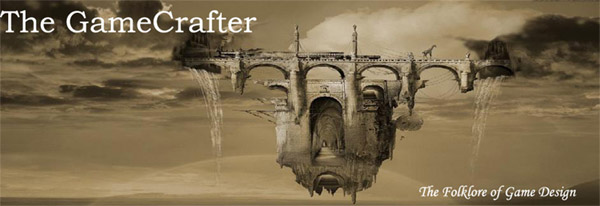 This is the first post on Blogspot, the previous posts were manually ported over to this site from another hosting service.
This is the first post on Blogspot, the previous posts were manually ported over to this site from another hosting service.It has been 20 days since the release of Prophesy of Pendor, the mod for Mount&Blade. We have over 7500 direct downloads, and over 1850 patch updates. For those of you who do not know, Mount&Blade is an independent game offering from a development house out of Turkey and more information on their offering can be found on past pages.
The success of Prophesy of Pendor, to date, is interesting to me on several levels. It should be interesting to you as well as it helps support some of the design concepts that I have been talking about.
The strength of a game is not measured in how often you play it. It is measured in how much you think about it when you are not playing. To do this effectively you have to keep alive what I like to call the unanswered question. If you think of your favorite television shows, movie franchises and books, you will see that this is a common trend in those that are very successful. Games are the same way.
One of the keys of course is pattern recognition. When we create a game that has identifiable patterns, and we, as the player, know what, when, how, where and who, then the experience becomes redundant. In MMORPG’s this is the point that social interaction and social ties becomes the bonds that keep us playing. No such social bonds exist with single player games. We go out and purchase the next game. In some cases, if we are savvy enough, we delve into the Mods and play those for a while then move on.
Part of the reason that this Mod is enjoying success is that it was designed to keep alive unanswered questions and uses elementary chaos theory to deliver content. This latter piece will be expanded in a later released to drive events in the game world so that no two games will be the same.
Technically I have created a scenario that simulates a heroic journey. This is a key element, luckily inherent in the Mount&Blade engine, is heavily accented in this mod.
The environment is framed in such a way as things in the game world can be identified to larger story elements that form meaning for the players. Meaning is key here, players are able to extrapolate from what they experience in the game and apply it to the story and to characters in and out of the game. It all ties together to form a holistic experience, and drives discovery, answers existing questions and generates more questions.
Most interestingly, and this will be accelerated in the next release, it blurs the line between reality and fantasy to the point that playing the game itself and finishing it has meaning beyond just the game.
The key concepts here are creating meaning, delivering content and events in ways that are not expected, and keeping unanswered questions alive. A game ends for a player when one of these three elements ceases. If there is no meaning, or if the content is delivered in recognizable chunks which is easily definable, or that there are no more questions to ask, the player realizes that they are done, regardless whether they have driven the game to its conclusion or not.
On another topic close to my heart is to talk again about Product vs. Service and why a product oriented approach fails us as gamers. I had a very interesting experience on the Forums of Mount&Blade recently where some players took offense to the idea of a service-based approach to a game offering. My guess is that they just do not understand the ramifications. That is ok, as I fully am aware that new concepts that are outside our experience are very difficult for folks to understand.
So, lets go over this a bit and do this exercise together.
If you owned a game company, how do you make your money? That is simple right? You make a game and sell it to a publisher and they pay you lots of cash right? That is roughly how it works with of course some royalty payments if you are lucky.
Here is the problem. As the owner of the company you have to keep making new games to stay in business and keep the cash flow positive. Thus as the game company you must intentionally, and pay attention here gamers, NOT CREATE A GAME THAT CAN BE PLAYED FOR YEARS AND DELIVER ALL OF THE FEATURES THAT GAMERS WANT.
In short game development shops will never deliver that ultimate gaming experience. Once they do that, you, the gamer, stop buying new games, and they are out of business.
What this means guys, and I am talking to those gamers who were so adamantly against the concept of gaming as a service, is that you will never see a game that delivers the type of experience that you will enjoy and explore for years as long as it is a product. Yes you will see some Mods and yes you will see some minor improvements, but in the end, the only entity who wins from this scenario is the publisher, the distributors and the retailers.
The guy with the short end of the stick is you, the gamer.
The development houses historically have competed like this for many years, and this was not ever an issue as the central theme of generational improvements was based in graphics. Much better graphics, very little improvement on game play and you had a hit. That is what everyone talked about right? That is what the gaming population today is conditioned (and I use this term in the true behaviorist sense), to accept.
Well, we have reached or will shortly reach, that point of realism in our graphics engines that will exceed the capabilities of our eyes and brains to determine a significant difference between generations of graphic improvements.
What happens to the product paradigm then?
Food for thought.
Peace out,
Jim





1 comment:
I've been on vacation for three weeks away from the interwebs. After acquiring provisions, unpacking, and doing laundry, one of the first things I did was work to get my gaming fix again. I was impressed by the quality of the backstory to Pendor on the mbrepository forums. After one paragraph, I started downloading. Your comments about poor game design in the industry remind me of Steffen Gerlach's design comments about C-evo, an attempt to raise the gameplay of Civ II to the quality and indefinite replayability of classic boardgame status.
I also appreciate your thoughts about media convergence -- and not in the same vein as professional game designers mean when they insert lots of non-interactivity and railroading imitating film to introduce plot! This approach is so wrong; as early movies matured did they introduce scads of exposition and narration to make them more like good novels? Of course not: they played on film's strengths (a panoramic camera sweep with appropriate facial expressions and background sound is worth a lot more than a thousand words...).
Ah, download finished. Looking forward to Pendor. Don't expect me to check back here anytime soon!
Post a Comment